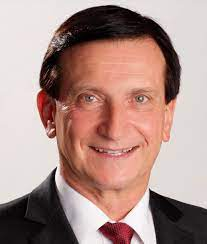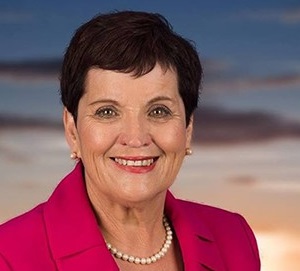The NSW government is proposing a major overhaul of the councillor Code of Conduct, saying the current system is giving rise to thousands of trivial complaints.

Almost 4,290 code of conduct complaints were lodged over the last three years.
A discussion paper released by the government on Thursday proposes a complete rewrite and simplification of the Model Code of Conduct.
The new system would see minor complaints about councillor misbehaviour dealt with at the local government level, while strengthening the powers of the Office of Local Government to deal with serious matters.
Under proposals in the discussion paper the onus will be put back on resolving issues of misbehaviour by a councillor’s peers, rather than escalating complaints for the state government or private investigators, local government minister Ron Hoenig says.
Current Code of Conduct being weaponised: minister
Currently, the code is more than 100 pages long and is being increasingly weaponised for political reasons, Mr Hoenig said.
“It is too open to weaponisation, with tit-for-tat complaints diverting critical council resources and ratepayer money from the things that matter most to communities.
“The sheer volume of vexatious complaints being made is preventing the Office of Local Government from focusing its attention on getting crooks out of the local government sector.”
The sheer volume of vexatious complaints being made is preventing the Office of Local Government from focusing its attention on getting crooks out of the local government sector.
Ron Hoenig
The paper proposes strengthening the role of OLG as the sector regulator, with expanded investigation powers for serious conflict of interest breaches and the ability to issue penalty infringement notices.
Proposed reforms would also streamline the code of conduct down to 2-3 pages and outline clear expectations of behaviour for the state’s 1,300 elected councillors.
Councils welcome release of paper
Local Government NSW (LGNSW) has welcomed the release of the Councillor Conduct Framework Discussion Paper.

LGNSW President Darriea Turley said the local government sector had been anticipating the release of the framework and supported any move that would ensure the highest standards of integrity and probity.
“This issue has been the subject of long conversation for councils and the eventual framework will be a key cornerstone in maintaining integrity, transparency and trust in local government across the state and this next step in the consultation process is very much welcomed by the sector,” Cr Turley said in a statement.
However, she said some aspects that needed to be ‘approached with caution’.
“The discussion paper has a range of aspects to it and we look forward to working with councils to hear their feedback and then liaising with the Minister and the Government to ensure we get a final framework that works for everyone,” Cr Turley said.
Key reforms outlined in the discussion paper include.
- Establishing a local government privileges committee of experienced councillors with mayoral experience to assess complaints made against councillors for misbehaviour, consistent with practices in other tiers of government (where the conduct does not meet the threshold for police or referral to another investigative body or tribunal)
- Removing private investigators from the councillor conduct process, while strengthening the investigative capability of the Office of Local Government to investigate and prosecute legitimate complaints (such as issuing penalty infringement notices where conflict of interest declarations have not been made)
- Banning private councillor briefing sessions, except in very limited circumstances
- Strengthening lobbying guidelines for local government
- Giving mayors more power to expel councillors from meetings for acts of disorder and remove their entitlement to receive a fee in the month of their indiscretion
The discussion paper is open for feedback until the close of Friday November 15, 2024.





Great! Mayors have too much power to use sanctions improperly.
Agree, the Mayor should only be the chairperson, he/she should not have any more authority than any other councilor. Also, lets keep political parties right out of local government.
Absolutely agree. A mayor, when chairing a meeting, should have no more “say” about an agenda item than do any of the other councllors. Our mayor constantly runs a commentary throughout a meeting and when residents address a meeting, he basically assesses their speech with comments like “well said”!! no councillor should be able to accuse another councillor of something then “withdraw” that comment. Once said, it’s said. There needs to be consequences in the new code for that type of political point scoring. Perhaps loss of % of salary or a set $$ amount that is to be paid into a welfare fund.
What is really needed is a code of conduct for NSW General Managers/CEOs some of whom act in blatant contravention of the principles and provisions of the NSW Local Government Act 1993 and in contempt of rating and other local government decisions handed down by the Land and Environment Court of NSW?
Why have successive NSW governments not included standards of conduct for General Managers and penalties for them when they breach those standards?